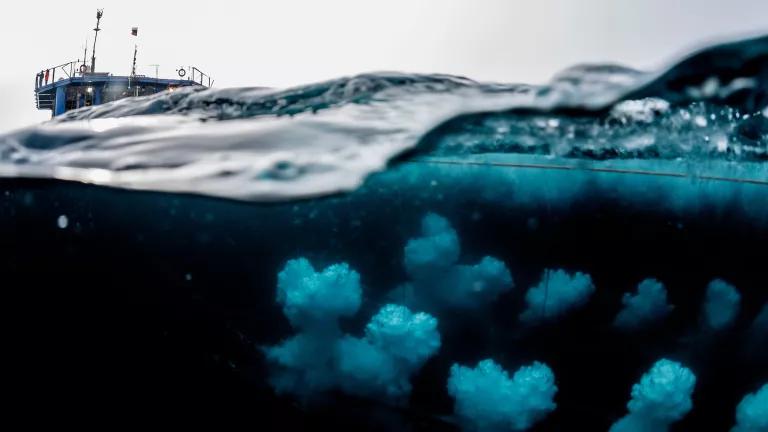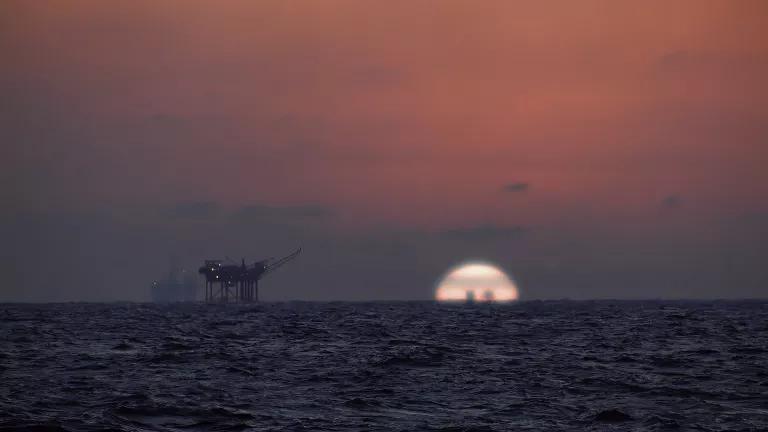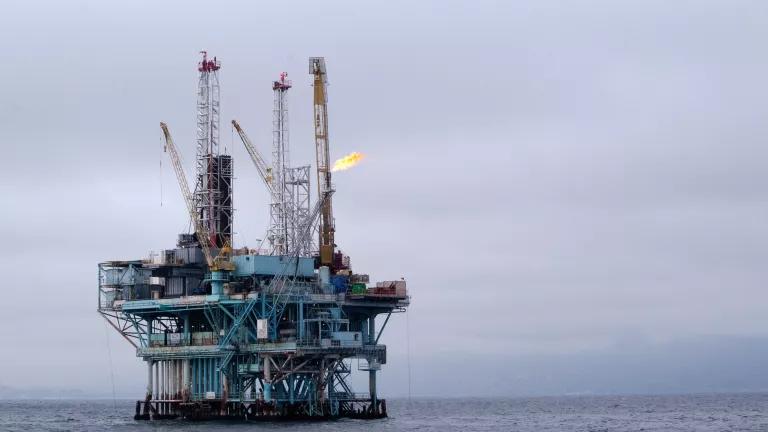NRDC Sues to Challenge Seismic Testing in the Gulf of Mexico
Among the animals at greatest risk from the impacts of seismic testing is the Gulf of Mexico whale—one of the most endangered marine mammals on the planet.

A ship conducting conducting seismic blasting
Among the animals at greatest risk from the impacts of seismic testing is the Gulf of Mexico whale—one of the most endangered marine mammals on the planet.
On January 19, not long before President Biden took office, the National Marine Fisheries Service published a regulation allowing widespread harm from seismic oil and gas testing in the Gulf of Mexico, with minimal protection for marine mammals. It wasn’t the only bad decision that the Trump administration squeezed through in its waning hours, but it was outrageous all the same.
Under the regulation, the oil and gas industry would be permitted to harm whales and dolphins—disrupting their feeding and other vital behavior and, in some cases, injuring them—more than 8 million times over the next five years. It would be permitted to constantly harass species that are still decades from recovering from the Deepwater Horizon spill. And to justify all that impact, the Fisheries Service played fast and loose with the law, which puts constraints on the number of marine mammals an activity can harm and the degree of harm it can cause.
Today NRDC, together with our partner groups, filed a lawsuit challenging the regulation and a number of related actions the Fisheries Service took during the last administration to approve seismic testing in the Gulf.
By now, the environmental influence of this activity is well known. To prospect for oil and gas, companies criss-cross the ocean with arrays of high-volume airguns, blasting the water about every ten seconds for days, weeks, or even months on end. The noise they generate is powerful enough to disrupt whale behavior over tens of miles and to mask whale calls, making it difficult for animals to communicate, over hundreds of miles more. They are also known to injure and kill fish and invertebrates and to dramatically reduce catch rates of some commercial fish.
Among the animals at greatest risk is the Gulf of Mexico whale—a species that some scientists have taken to calling “the American whale,” because it is the only one of the great baleens found exclusively off the coast of the United States. Ironically, just nine months before the seismic regulation was published, the Fisheries Service added the Gulf of Mexico whale to the endangered species list. With only about fifty individuals remaining, it is one of the most endangered marine mammals on the planet.

A Rice’s whale swims in the Gulf of Mexico
To its credit, the Fisheries Service recognized that offshore oil and gas activities, including seismic testing, would jeopardize the whale’s continued survival. Yet the agency failed to propose—or even, apparently, to consider—any alternative to reduce the impacts of seismic testing on the species. It might have excluded airgun surveys from important habitat, or required companies to use quietest available technology, or capped the amount of seismic activity that can occur, as experts from the U.S. Marine Mammal Commission and others had recommended. It did none of these things.
In truth, the Service’s decision is one in a long line undercutting the Endangered Species Act and Marine Mammal Protection Act, and their mandates to protect vulnerable species from ocean noise. But the fossil-fuel bias of the Trump administration made the end result even worse.
We’ve filed our lawsuit just as the administration is reviewing the government’s permitting practices for fossil fuel development on federal lands. Any meaningful review must consider the permitting practices at issue in this case—the dangerous treatment of legal standards, the lax approach to mitigation. If the administration means to fulfill its commitments to conservation and robust science, it should look here.
The case, NRDC v. Coit, was filed in the federal District Court of Maryland, where the Fisheries Service is headquartered. Other Plaintiffs are Healthy Gulf, the Association of Zoos and Aquariums, the Center for Biological Diversity, and Surfrider Foundation.


